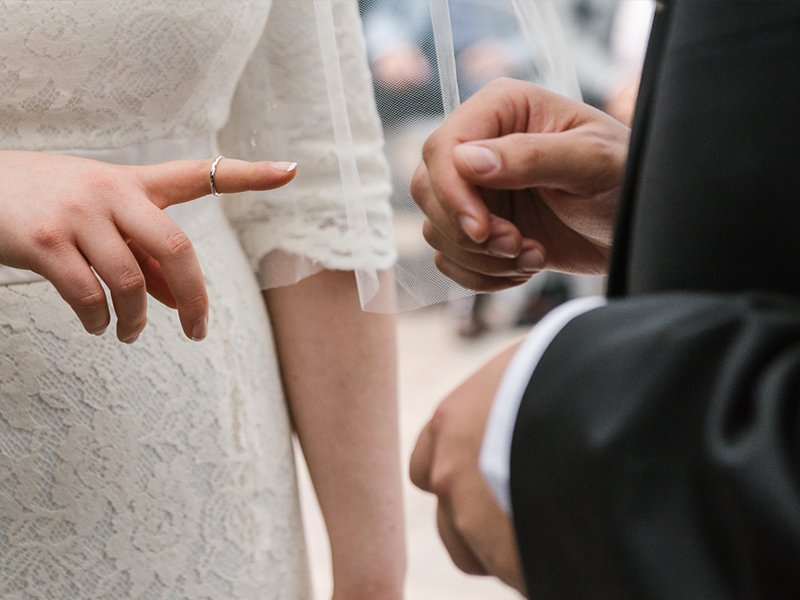One reason I’m happy to have retired from being a congregational rabbi is that I don’t have to face the pressing question of whether or not to officiate at intermarriage ceremonies. It was much easier from the 1960s onward in Britain, where I worked for some 21 years, and later in Toronto, where Reform rabbis didn’t perform marriage ceremonies between Jews and non-Jews. I understand, however, that pressures are growing to change established practices.
The literature advocating sole rabbinic officiation at marriages between a Jew and a non-Jew – in contrast to interfaith marriages where clergy of different religions share the honours – makes serious and important claims.
An article last year in the Times of Israel by Steven M. Cohen, the distinguished American-Jewish sociologist, and Rabbi Joy Levitt, who heads the JCC in Manhattan, had the caption, “If you marry a Jew, you’re one of us.” Their message was that a non-Jew who weds a Jewish partner should become a de facto member of the Jewish People.
The authors argue that non-Jews who’ve been married to their Jewish spouses by a rabbi are more likely to bring up their children as Jews. Citing the 2013 Pew survey, they report that in addition to the 79,000 adult Jewish converts in the United States, there were 83,000 non-Jews who regarded themselves as Jews, even though they hadn’t converted. Many of them or their parents may have been married under a chupah.
Even more compelling is the recent JTA article by two Conservative rabbis, Adina Lewittes and Amichai Lau-Lavie, who both lead vibrant congregations in the New York area. They assert that “interfaith marriages conducted by a sole Jewish officiant definitely display stronger connection to Jewish life and community.”
Their testimony is worth citing: “Both of us have worked with intermarrying couples whose desire to be married by a rabbi was part of a deeper commitment to Jewish life. Both of us have seen first-hand the difference our presence made as they envisioned lives inspired by Jewish values and practice, often joining our communities. Both of us have seen the fallen faces and felt the pain of those who had to, literally and spiritually, turn away. Our shared sense of urgency and need for collective action, along with that of many colleagues in the Conservative movement, finds powerful resonance in this latest data.”
Because of their stance, they’ve been isolated from the Conservative rabbinate. Rabbi Lau-Lavie is a scion of a distinguished rabbinic family in Israel. His uncle has been Ashkenazi chief rabbi, a post now held by his son, the first cousin of the article’s co-author. Rabbi Lau-Lavie’s brother is Rabbi Benny Lau, arguably the most influential Orthodox rabbi in the Jewish state. It’s reasonable to assume the Lau family doesn’t endorse Rabbi Lau-Lavie’s stance.
Should Reform rabbis in Canada support, and perhaps even emulate, him? Throughout my rabbinate, I’ve argued that formal commitment to lead a Jewish life through conversion, and the study and practice that go with it, must be a prerequisite for being accepted as a Jew. My colleagues and I have seen countless women and men who have formally embraced Judaism, brought up their children as Jews and made considerable contributions to their communities.
But I’m now repeatedly reminded that everything, including Judaism, has become more fluid. Particularly those who call themselves liberals cannot be rigid. Postmodern spirituality breaks taboos, promotes sincerity and renders the old institutional formalities obsolete. If rabbis truly care about preserving Judaism for future generations, they must be open to new, even revolutionary, ways of attracting non-Jews. They should be flexible in responding to the needs and aspirations of those who seek them out.
For all I know, the authors cited above may be right. Perhaps if I were serving a congregation today, I might seek to follow their ways. But even at a distance, I respect and learn from them.









